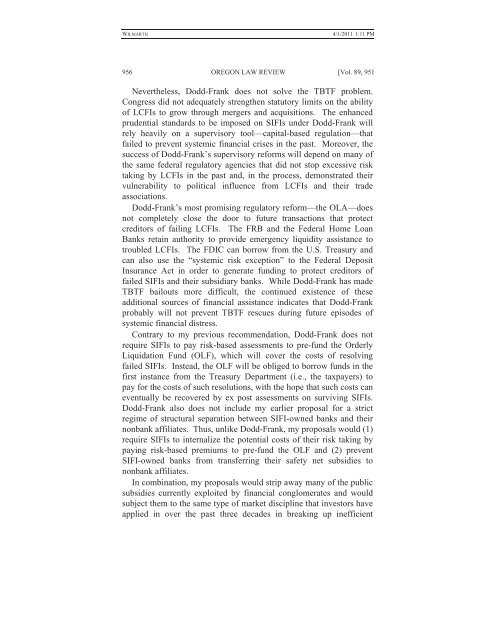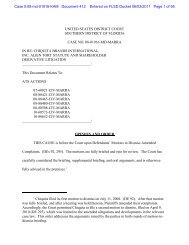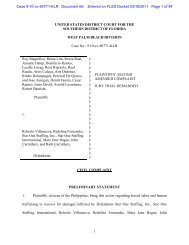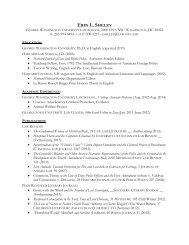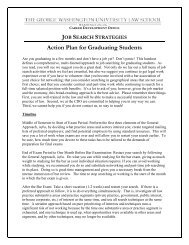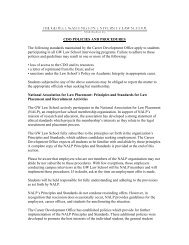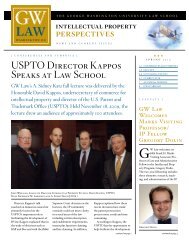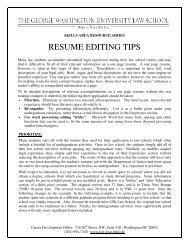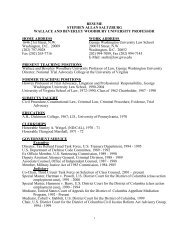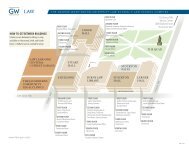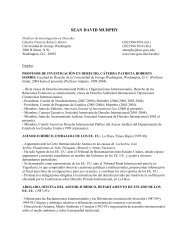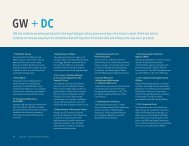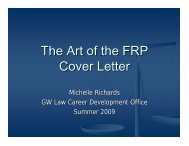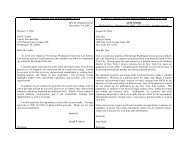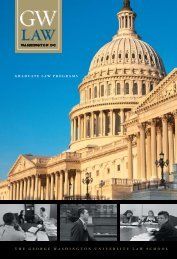CLE Materials for Panel #1 - George Washington University Law ...
CLE Materials for Panel #1 - George Washington University Law ...
CLE Materials for Panel #1 - George Washington University Law ...
You also want an ePaper? Increase the reach of your titles
YUMPU automatically turns print PDFs into web optimized ePapers that Google loves.
WILMARTH<br />
4/1/2011 1:11 PM<br />
956 OREGON LAW REVIEW [Vol. 89, 951<br />
Nevertheless, Dodd-Frank does not solve the TBTF problem.<br />
Congress did not adequately strengthen statutory limits on the ability<br />
of LCFIs to grow through mergers and acquisitions. The enhanced<br />
prudential standards to be imposed on SIFIs under Dodd-Frank will<br />
rely heavily on a supervisory tool—capital-based regulation—that<br />
failed to prevent systemic financial crises in the past. Moreover, the<br />
success of Dodd-Frank’s supervisory re<strong>for</strong>ms will depend on many of<br />
the same federal regulatory agencies that did not stop excessive risk<br />
taking by LCFIs in the past and, in the process, demonstrated their<br />
vulnerability to political influence from LCFIs and their trade<br />
associations.<br />
Dodd-Frank’s most promising regulatory re<strong>for</strong>m—the OLA—does<br />
not completely close the door to future transactions that protect<br />
creditors of failing LCFIs. The FRB and the Federal Home Loan<br />
Banks retain authority to provide emergency liquidity assistance to<br />
troubled LCFIs. The FDIC can borrow from the U.S. Treasury and<br />
can also use the “systemic risk exception” to the Federal Deposit<br />
Insurance Act in order to generate funding to protect creditors of<br />
failed SIFIs and their subsidiary banks. While Dodd-Frank has made<br />
TBTF bailouts more difficult, the continued existence of these<br />
additional sources of financial assistance indicates that Dodd-Frank<br />
probably will not prevent TBTF rescues during future episodes of<br />
systemic financial distress.<br />
Contrary to my previous recommendation, Dodd-Frank does not<br />
require SIFIs to pay risk-based assessments to pre-fund the Orderly<br />
Liquidation Fund (OLF), which will cover the costs of resolving<br />
failed SIFIs. Instead, the OLF will be obliged to borrow funds in the<br />
first instance from the Treasury Department (i.e., the taxpayers) to<br />
pay <strong>for</strong> the costs of such resolutions, with the hope that such costs can<br />
eventually be recovered by ex post assessments on surviving SIFIs.<br />
Dodd-Frank also does not include my earlier proposal <strong>for</strong> a strict<br />
regime of structural separation between SIFI-owned banks and their<br />
nonbank affiliates. Thus, unlike Dodd-Frank, my proposals would (1)<br />
require SIFIs to internalize the potential costs of their risk taking by<br />
paying risk-based premiums to pre-fund the OLF and (2) prevent<br />
SIFI-owned banks from transferring their safety net subsidies to<br />
nonbank affiliates.<br />
In combination, my proposals would strip away many of the public<br />
subsidies currently exploited by financial conglomerates and would<br />
subject them to the same type of market discipline that investors have<br />
applied in over the past three decades in breaking up inefficient


